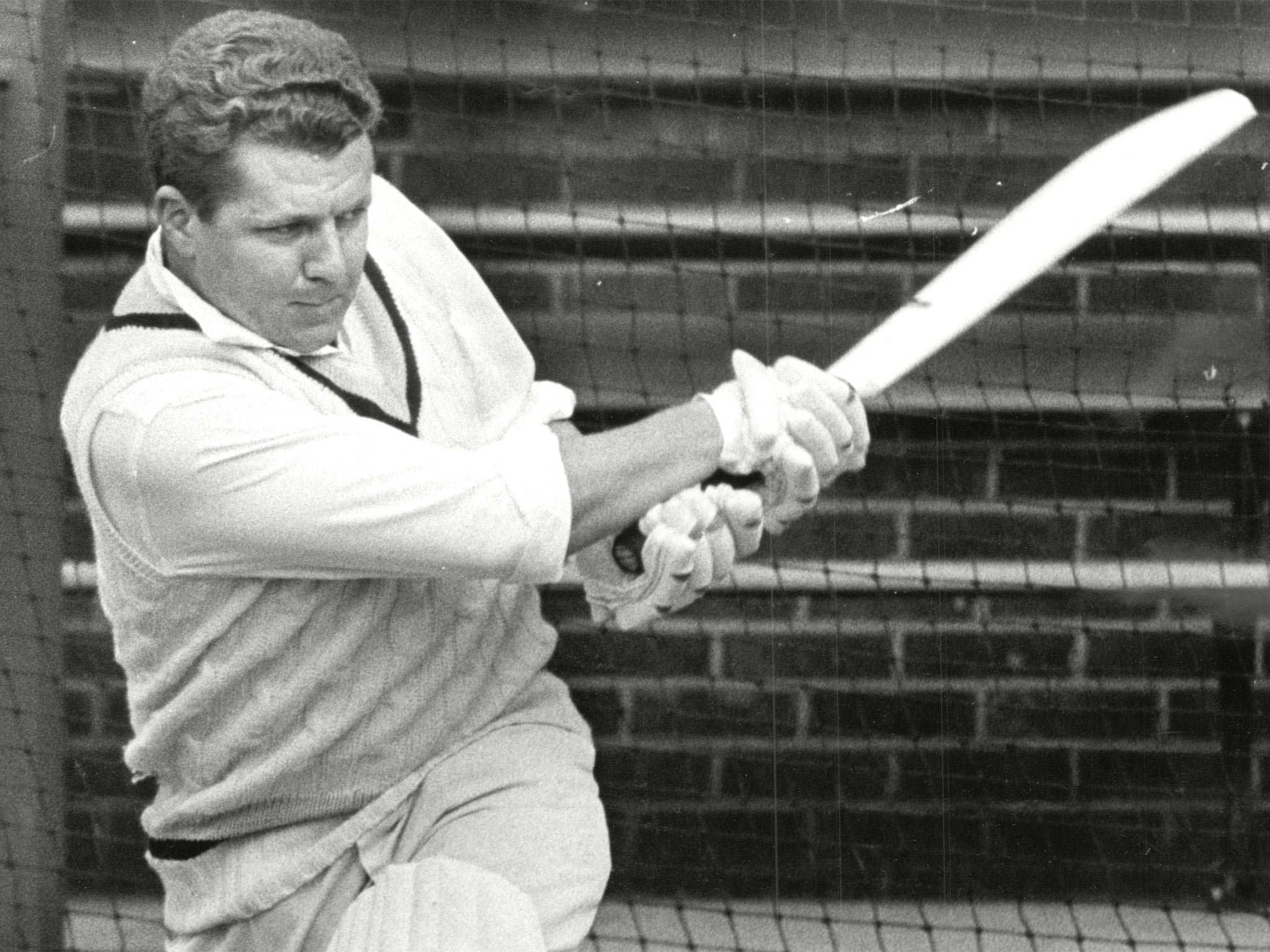Phil Sharpe: England and Yorkshire cricketer who forged a reputation as one of the best slip fielders in the history of the game

Phil Sharpe, who won 12 England Test caps and scored 22,530 runs, 17,685 of them for Yorkshire, in a first-class cricket career spanning 21 seasons, looked an unlikely sportsman. He stood only 5ft 7in, with a stocky and compact build, and his preference for cricket trousers of a generous cut could create an impression of dumpiness.
Yet he earned a reputation as one of the best slip fielders the game has seen. He held 618 catches in first-class matches, 526 of them for Yorkshire and 17 for England, most of them taken in the slip cordon. He claimed to like loose-fitting trousers so that he could move and bend in comfort.
In fact it was rare to see him dive for the ball. His effectiveness was a product not so much of athleticism but of anticipation, speed of reactions and astute judgement, based on his assessment of the pace and skill of a bowler, and of the batsman, and whether the pitch was slow, quick or bouncy. He seemed always to know precisely how far back and at what angle he should stand.
Sharpe took an unusually high number of catches with his left hand, which was down to the working relationship he developed with Jimmy Binks, the Yorkshire wicketkeeper he spent much of his career standing next to at first slip. Their understanding of whose chance it was when a batsman edged the ball seemed almost telepathic.
Sharpe had small hands for a slip fielder but colleagues would be hard-pressed if asked to recall him dropping a chance, and his fondness for playing the piano was seldom compromised by damaged fingers. He told others that his secret was to keep his hands relaxed at all times and not to move too soon, to let the ball go to hand rather than the other way round. As a result it often seemed almost to have passed him before he reacted, an illusion he would compound occasionally by hiding the ball in his pocket after he had caught it, leaving team-mates momentarily baffled.
It has been suggested that but for his fielding he would not have played Test cricket but his record for England stands scrutiny. His low centre of gravity helped him become a powerful hooker and puller, although he was a notable driver through the offside, too. He made one century, against New Zealand at Trent Bridge in 1969, sharing a second-wicket partnership of 249 with John Edrich after Geoffrey Boycott had gone for a duck.
He played notably well against West Indies, whom he faced in half his games, one of which was memorable for a stunning slip catch in the first Test at Old Trafford in 1969, when he pouched a ferocious slash by Joey Carew off the bowling of Basil D'Oliveira that is still recalled. Sharpe recognised that it was a particularly good catch, allowing himself the rare liberty of tossing the ball in the air to celebrate, for once ignoring the advice of his father, Bert, a Bradford mill executive, who had told him early in his career that he disapproved of such ostentatious displays of self-congratulation.
He finished with a Test batting average of 46.23 and if he had one regret it was that in four Test innings on his home ground, Headingley, he never scored more than 15 runs.
Sharpe's first-class average of 30.73 might seem modest next to his Test record but he played much of his cricket on uncovered pitches in the north of England, to which he took time to adjust after learning his craft on pristine wickets at Worksop College, the Nottinghamshire public school he attended from the age of 12. He hit 29 centuries and 111 50s before retiring in 1976 after two seasons with Derbyshire, whom he joined after Yorkshire released him after the 1974 season.
He continued to play Minor Counties cricket for Norfolk and served as a Test selector, from 1983 to 1988, and ECB pitch inspector, as well as spending some years on the Yorkshire committee. In his youth he had been a fine hockey player, representing the Ben Rhydding club and Yorkshire and earning two England trials.
His career with Yorkshire coincided with one of the county's golden eras, with seven County Championship titles from 1959-69. The team enjoyed their successes, and Sharpe was a prominent figure in most of their celebrations. He and Don Wilson were fans of the Black and White Minstrels, whom Wilson insisted on meeting during a Yorkshire match at Scarborough that coincided with the Minstrels appearing at the Futurist Theatre, waiting with Sharpe at the Stage Door until the principal singers made their exits. Friendships were made and the two players helped out backstage on occasions at the Alhambra in Bradford, lured by the chance to socialise with the dancing girls who accompanied the Minstrels.
An accomplished pianist and singer, he developed a repertoire of Minstrels numbers, along with songs from Gilbert and Sullivan, with which he and Wilson would entertain the rest of the team. Affable and sociable, he was a popular team member, although his approach to the game was not to everyone's taste. In his 1987 autobiography Geoff Boycott explained why he had opposed a suggestion that Sharpe should become captain: his "tactical skills were limited", and were he to take charge the team would reflect his "social, rather weak and insipid attitude to cricket."
JON CULLEY
Philip John Sharpe, cricketer: born Shipley, West Yorkshire 27 December 1936; married Susan (one daughter); died 19 May 2014.
Subscribe to Independent Premium to bookmark this article
Want to bookmark your favourite articles and stories to read or reference later? Start your Independent Premium subscription today.

Join our commenting forum
Join thought-provoking conversations, follow other Independent readers and see their replies